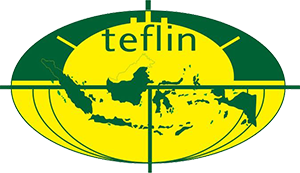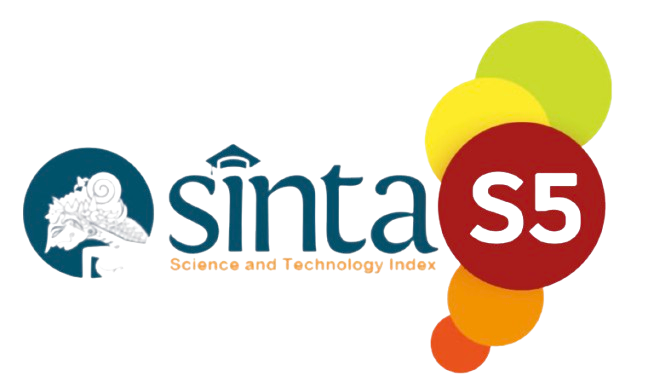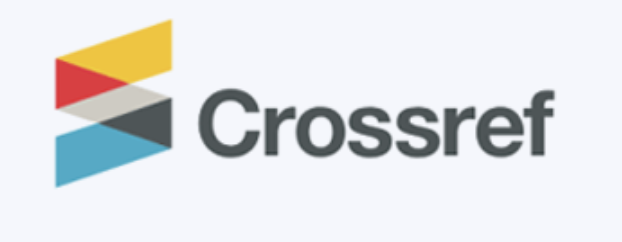Strengthening Ecological Fiqh Values in Building SDGs Madrasah Models Through Environmental Outdoor Education
DOI:
https://doi.org/10.52217/ijlhe.v8i1.1729Keywords:
Ecological Fiqh, Islamic Education, Madrasah, SDGsAbstract
This study aims to strengthen the values of ecological fiqh in building a madrasa model that supports the achievement of Sustainable Development Goals (SDGs). Ecological fiqh, which is based on Islamic principles such as balance (mizan), non-destruction (la tufsidu fil ard), and sustainability (istidamah), offers a relevant conceptual framework to address global challenges related to the environment. Madrasas, as educational institutions based on Islamic values, have the potential to become centers of educational transformation in instilling ecological awareness and supporting the goals of the SDGs, especially quality education (SDG 4), environmental action (SDG 13) and life on land (SDG 15). This study uses a conceptual method with a theoretical analysis approach. Data and information were obtained through a literature review of various literatures, including primary sources in ecological fiqh and SDGs documents. The analysis was conducted to formulate the principles of ecological fiqh that can be integrated into the madrasa education model. The results of the study indicate that strategies for strengthening ecological values include integration into the curriculum, developing an environmentally friendly culture in madrasas, and involving the educational community and the wider community. This study provides a conceptual contribution in formulating an SDGs-based madrasah model based on ecological fiqh. Recommendations are provided for policy makers, madrasah managers, and related parties in building an educational ecosystem that supports global sustainability.
References
Aditiya, O. (2021) ‘Pelestarian Lingkungan Dalam Islam Implikasinya Terhadap Pendidikan Lingkungan’, Matriks Jurnal Sosial Dan Sains, 1(1), pp. 29–35. doi:10.36418/matriks.v1i1.50.
Arif, S. (2024) ‘Analisis Kebijakan Pendidikan Dalam Perspektif Madrasah’, Syntax Idea, 6(3), pp. 1138–1148. doi:10.46799/syntax-idea.v6i3.3057.
Asfiyak, K. (2022) ‘The Existence and Problematics of Islamic Law Post-Pandemi Covid-19’, Jurnal Ilmiah Ahwal Syakhshiyyah (Jas), 4(2), pp. 188–208. doi:10.33474/jas.v4i2.18921.
Dewey, J. (1938) Experience and Education. New York: Macmillan.
Fayyaz, S. et al. (2023) ‘Assessing Environmental Awareness and Conservation Behavior in Schools for Sustainable Development’, Pakistan Journal of Humanities and Social Sciences, 11(4). doi:10.52131/pjhss.2023.1104.0676.
Haddade, H. (2024) ‘Madrasah Management Strategies Through Madrasah Reform Program: An Evidence From Indonesia’, International Journal of Educational Management, 38(5), pp. 1289–1304. doi:10.1108/ijem-05-2023-0236.
Hasmiza, H. (2023) ‘Strategi Kepala Madrasah Dalam Meningkatkan Religiositas Siswa Di Man 1 Natuna’, Research and Development Journal of Education, 9(1), p. 234. doi:10.30998/rdje.v9i1.16021.
Hasyim, A.A., Jinan, M.A.M. and Muthoifin, M. (2023) ‘Islamic Perspective on Environmental Sustainability Educational Innovation: A Conceptual Analysis’, Jiip - Jurnal Ilmiah Ilmu Pendidikan, 6(7), pp. 4654–4659. doi:10.54371/jiip.v6i7.1822.
Hestiyana, H. (2023) ‘Kearifan Ekologis Dalam Cerita Rakyat Dayak Bakumpai: Kajian Ekokritik’, Susastra Jurnal Ilmu Susastra Dan Budaya, 10(2), pp. 82–91. doi:10.51817/susastra.v10i2.121.
Ibáñez, M.E. et al. (2020) ‘Environmental Education, an Essential Instrument to Implement the Sustainable Development Goals in the University Context’, Sustainability, 12(19), p. 7883. doi:10.3390/su12197883.
Khoiriyah, S. (2023) ‘Sustainable Islamic Education: Literature Study Towards Achieving the Vision of Sustainable Development Goals (SDGs)’, Jurnal Pendidikan Islam Indonesia, 8(1), pp. 12–28. doi:10.35316/jpii.v8i1.492.
Kolk, A., Kourula, A. and Pisani, N. (2017) ‘Multinational Enterprises and the Sustainable Development Goals: What Do We Know and How to Proceed?’, Transnational Corporations, 24(3), pp. 9–32. doi:10.18356/6f5fab5e-en.
Macpal, S. (2023) ‘Penguatan Pengetahuan Cinta Lingkungan Hidup Pada Siswa MTs Al Islam Gorontalo’, Tarsius, 5(2), pp. 51–61. doi:10.30984/tarsius.v5i2.699.
Mansir, F., Tumin, T. and Purnomo, H. (2020) ‘The Use of Active Learning Methods in Learning Fiqh Subjectat Islamic Boarding School’, Lentera Pendidikan Jurnal Ilmu Tarbiyah Dan Keguruan, 23(1), p. 173. doi:10.24252/lp.2020v23n1i14.
Meyresta, L., Fasa, M.I. and Suharto, S. (2022) ‘Etika Pengelolaan Sumber Daya Alam Berkelanjutan Dalam Perspektif Islam’, Jurnal Dinamika Ekonomi Syariah, 9(2), pp. 85–96. doi:10.53429/jdes.v9i2.389.
Munawaroh, I.B. (2023) ‘Re-Examining the Correlation Between Islam and Adat Through Environmental Conservation’, WSiSS, 1(01), pp. 77–85. doi:10.58812/wsiss.v1i01.328.
Nasir, M. (2015) ‘Kurikulum Madrasah: Studi Perbandingan Madrasah Di Asia’, Nadwa Jurnal Pendidikan Islam, 9(2), pp. 145–166. doi:10.21580/nw.2015.9.2.524.
Naufal, M.R., Nasrudin, E. and Jaelani, D.A. (2023) ‘Implementasi Manajemen Pendidikan Karakter Peduli Lingkungan Berbasis Pendidikan Islam Di SD Islam Fathiya’, Jiip - Jurnal Ilmiah Ilmu Pendidikan, 6(9), pp. 7166–7174. doi:10.54371/jiip.v6i9.2858.
Notolegowo, H.K. (2023) ‘Relationship Between Islamic Social Finance and Sustainable Development Goals: A Conceptual Framework’, Kne Social Sciences, p. 197. doi:10.18502/kss.v8i18.14245.
Nurchurifiani, E., Maximilian, A., Ajeng, G. D., Wiratno, P., Hastomo, T., & Wicaksono, A. (2025). Leveraging AI-Powered Tools in Academic Writing and Research: Insights from English Faculty Members in Indonesia. International Journal of Information and Education Technology, 15(2), 312–322. https://doi.org/10.18178/ijiet.2025.15.2.2244
Purwati, N., Zubaidah, S. and Mahanal, S. (2023) ‘Mapping Basic Science and Religious Competencies: An Initial Step to Realizing Integrated Science Learning With Islamic Values’, Biosfer Jurnal Pendidikan Biologi, 16(1), pp. 186–196. doi:10.21009/biosferjpb.30799.
Rasyid, R. et al. (2020) ‘Implikasi Lingkungan Pendidikan Terhadap Perkembangan Anak Perspektif Pendidikan Islam’, Auladuna Jurnal Pendidikan Dasar Islam, 7(2), p. 111. doi:10.24252/auladuna.v7i2a1.2020.
Riadi, A. (2016) ‘Pendidikan Karakter Di Madrasah/Sekolah’, Ittihad, 14(26). doi:10.18592/ittihad.v14i26.868.
Rini, D.K. et al. (2022) ‘Pendidikan Islam Pada Pesantren Pertanian Untuk Membangun Ekosofi (Ekologi Filosofi) Bagi Penyelamatan Lingkungan’, Edukasi Islami Jurnal Pendidikan Islam, 11(03), p. 559. doi:10.30868/ei.v11i03.2779.
Rizki, O.F. (2023) ‘Pentingnya Pendidikan Multikultural Berbasis Agama’, Anthor Education and Learning Journal, 2(2), pp. 250–255. doi:10.31004/anthor.v2i2.122.
Sari, D.R. and Urcy, J. (2022) ‘Management of Madrasah Heads in Improving the Quality of Education’, Al-Fikrah Jurnal Manajemen Pendidikan, 10(2), p. 138. doi:10.31958/jaf.v10i2.5470.
Sharma, A. and Lee, M.P. (2011) ‘Sustainable Global Enterprise’, Journal of Management Inquiry, 21(2), pp. 161–178. doi:10.1177/1056492611426481.
Sholihah, A.M. and Maulida, W.Z. (2020) ‘Pendidikan Islam Sebagai Fondasi Pendidikan Karakter’, Qalamuna Jurnal Pendidikan Sosial Dan Agama, 12(01), pp. 49–58. doi:10.37680/qalamuna.v12i01.214.
Solehuddin, D. (2023) ‘Peran Guru Dalam Pendidikan Karakter Berbasis Literasi Kepada Siswa Pada Mata Pelajaran Pendidikan Agama Dan Budi Pekerti Kelas Xi Di SMKN 14 Bandung’, Al-Hasanah Islamic Religious Education Journal, 8(2), pp. 224–237. doi:10.51729/82189.
Suherman, N. and Indra, H. (2023) ‘Peran Teknologi Informasi Dalam Meningkatkan Efektivitas Kepemimpinan Pendidikan Islam’, 1(10), pp. 680–684. doi:10.57185/mutiara.v1i10.104.
Tazkiah, L. et al. (2022) ‘Supervision of Madrasah Principal on the Implementation of English Learning Evaluation’, Nidhomul Haq Jurnal Manajemen Pendidikan Islam, 7(3), pp. 387–403. doi:10.31538/ndh.v7i3.2613.
Tian, H. and Chen, S. (2023) ‘Structural Analysis of Environmental Literacy of Urban Residents in China—Based on the Questionnaire Survey of Qingdao Residents’, Sustainability, 15(6), p. 5552. doi:10.3390/su15065552.
Yusuf, M. (2023) ‘Inovasi Teknologi Finansial (Fintech) Dalam Pengelolaan Keuangan Institusi Pendidikan Islam’, 2(2), pp. 159–182. doi:10.62719/diksi.v2i2.41.
Zulianti, H., Hastuti, H., Nurchurifiani, E., Hastomo, T., Maximilian, A., & Ajeng, G. D. (2024). Enhancing Novice EFL Teachers’ Competency in AI-Powered Tools Through a TPACK-Based Professional Development Program. World Journal of English Language, 15(3), 117. https://doi.org/10.5430/wjel.v15n3p117














